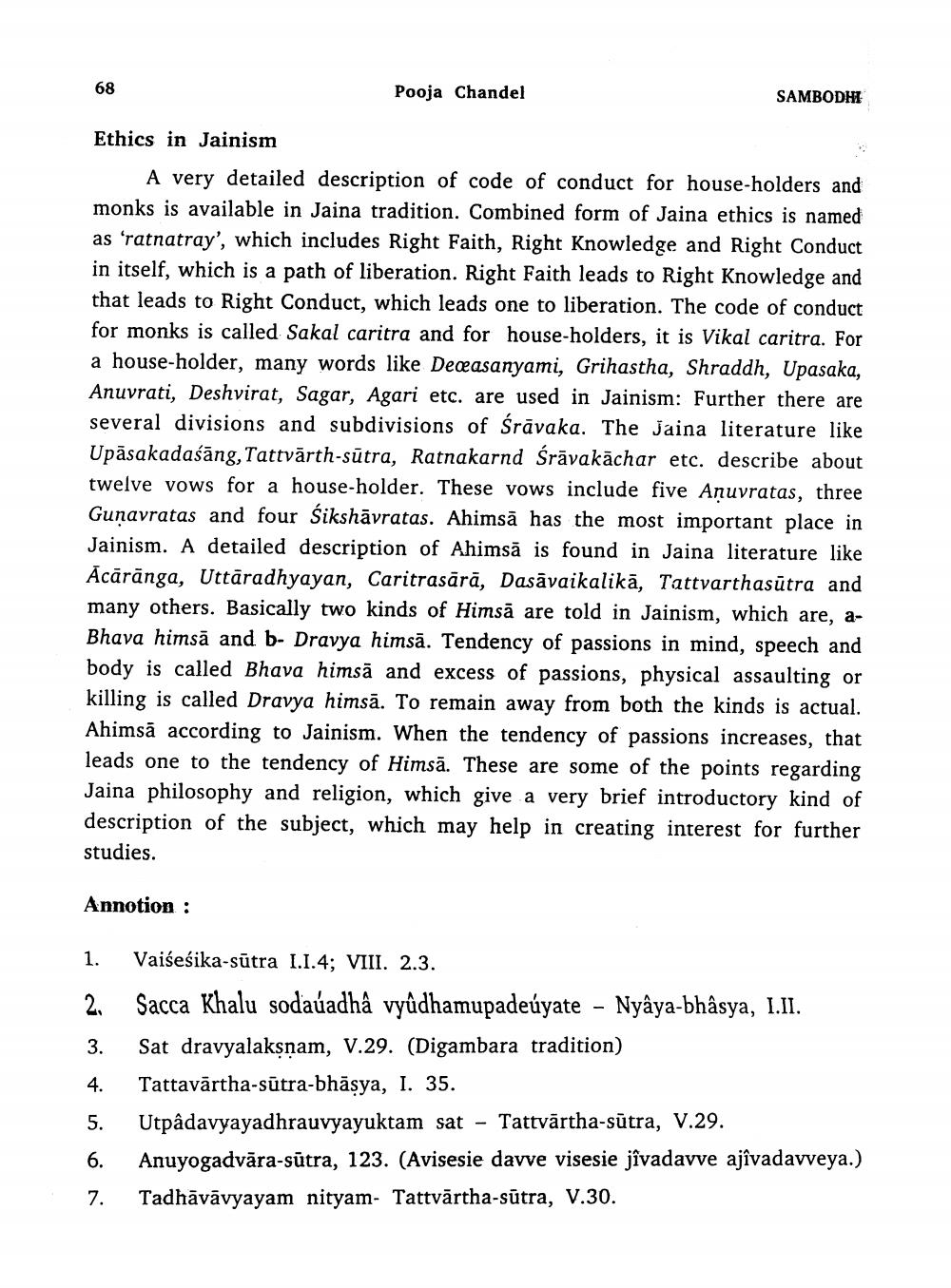________________
68
Pooja Chandel
SAMBODHE
Ethics in Jainism
A very detailed description of code of conduct for house-holders and monks is available in Jaina tradition. Combined form of Jaina ethics is named as 'ratnatray', which includes Right Faith, Right Knowledge and Right Conduct in itself, which is a path of liberation. Right Faith leads to Right Knowledge and that leads to Right Conduct, which leads one to liberation. The code of conduct for monks is called Sakal caritra and for house-holders, it is Vikal caritra. For a house-holder, many words like Deæasanyami, Grihastha, Shraddh, Upasaka, Anuvrati, Deshvirat, Sagar, Agari etc. are used in Jainism: Further there are several divisions and subdivisions of Śrāvaka. The Jaina literature like Upāsakadaśāng, Tattvārth-sūtra, Ratnakarnd Śrāvakāchar etc. describe about twelve vows for a house-holder. These vows include five Anuvratas, three Gunavratas and four Sikshāvratas. Ahimsā has the most important place in Jainism. A detailed description of Ahimsā is found in Jaina literature like Ācārānga, Uttāradhyayan, Caritrasārā, Dasāvaikalikā, Tattvarthasūtra and many others. Basically two kinds of Himsā are told in Jainism, which are, aBhava himsā and b- Dravya himsā. Tendency of passions in mind, speech and body is called Bhava himsā and excess of passions, physical assaulting or killing is called Dravya himsā. To remain away from both the kinds is actual. Ahimsă according to Jainism. When the tendency of passions increases, that leads one to the tendency of Himsā. These are some of the points regarding Jaina philosophy and religion, which give a very brief introductory kind of description of the subject, which may help in creating interest for further studies.
Annotion :
1. 2. 3.
Vaišeśika-sūtra 1.1.4; VIII. 2.3. Sacca Khalu sodaúadhâ vyûdhamupadeúyate - Nyâya-bhâsya, I.II. Sat dravyalaksnam, V.29. (Digambara tradition) Tattavārtha-sūtra-bhāșya, I. 35. Utpâdavyayadhrauvyayuktam sat - Tattvārtha-sūtra, V.29. Anuyogadvāra-sūtra, 123. (Avisesie davve visesie jîvadavve ajîvadavveya.) Tadhāvāvyayam nityam- Tattvärtha-sútra, V.30.
5. 6. 7.




